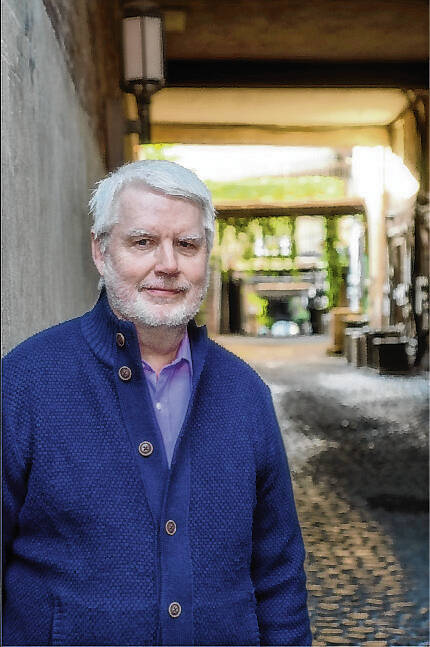Every one of us has a self-selected soundtrack as we live out our lives. I’m referring to the music we have on when we’re in the car or the music we have on in the background at home or at work. Even as the books on our shelves reveal something about us, so does the music we routinely listen to.
Being a minister’s son, I grew up surrounded by hymns. My father even used to sing hymns at home, including a rousing one he sang every morning to wake us up for school or church.
But my personal soundtrack was the rock music that I listened to in my room. It wasn’t the music my father wanted me to listen to, but I wasn’t going to miss Elvis, the Everly Brothers, Ricky Nelson and the groups that I could hear on my tiny transistor radio.
One of my favorite songs in the early ’60s was by a group called the Angels, although these weren’t the angels that my father had in mine. The group’s hit, “My Boyfriend’s Back,” was a sassy assurance, even a threat, that the singer’s boyfriend had returned — it wasn’t clear if he’d been in the military, at college, or simply away on a fishing trip — and would settle up with the guy bothering his girl.
Like nearly every other teenager on the planet, I was blown away by the Beatles and the other British groups who “invaded” our shores. I couldn’t wait to hear their latest offerings, and they rarely disappointed. From that moment on, rock blossomed into a variety of forms, and I appreciated almost all of them. In those decades, I doubt if I ever went anywhere in a car without music — rock music — on the radio or on a tape.
Lately, however, I’ve noticed a change in my musical diet, especially when I’m on a long trip in the car. For the first part of the trip, I might still listen to rock music, but then I notice that it leaves me feeling jangled. Part of it is that I get tired of the frequent commercials on the radio, but that isn’t the sole reason. It has slowly dawned on me that what makes much rock music easy to remember is also what makes me lose interest in it as the hours slip by in the car. I’m referring to the repetitious refrains, the catchy melody that is repeated over and over again.
At a certain point on a car trip, I am hunting the radio dial for — heresy of heresies — classical music. This was the music when I was younger that seemed interminably long and boring. Even though I played in the band and orchestra throughout high school, I never gained an appreciation for what we termed “high-brow music.”
I’ve asked myself what has changed within me, and so far I’ve identified two reasons for my new appreciation of classical music. One reason is that classical music helps me relax when I’m working or especially when I’m in the car. No, it doesn’t make me tired, just relaxed. A second reason is that I’m beginning to pick up the changing moods in longer pieces of music. Classical music often contains memorable sections, even melodies, but classical music tends to patiently build to those moments, not hit me with melodies right away and endlessly repeat them. What has stunned me over and over again in classical pieces is the composer’s ability to write such beautifully layered music for so many musicians.
I will never be a serious student of classical music, so it would be a waste of time to ask me to define a scherzo, rondo, concerto or motet. And I’ll never swear off rock music. When “My Boyfriend’s Back” comes on an oldies station, I’ll still smile and even sing along. Songs like that are like fast food — the taste is immediate but predictable.
Fast food can be just what I crave at times, but it will never be confused with the varied and complex tastes of a five-course meal. Late in life, I’ve found that this is what classical music has become: a delicious five-course meal.
David Carlson of Franklin is a professor emeritus of philosophy and religion. Send comments to [email protected].





